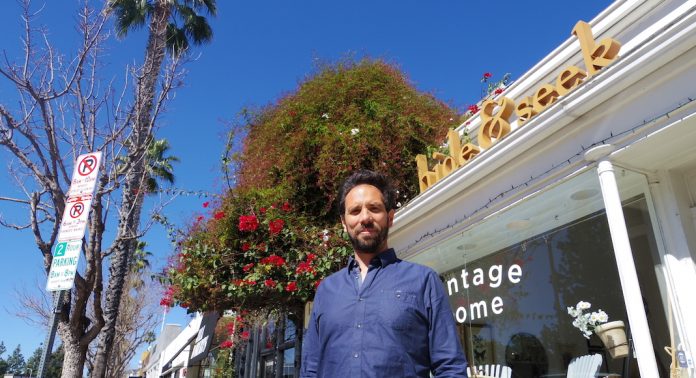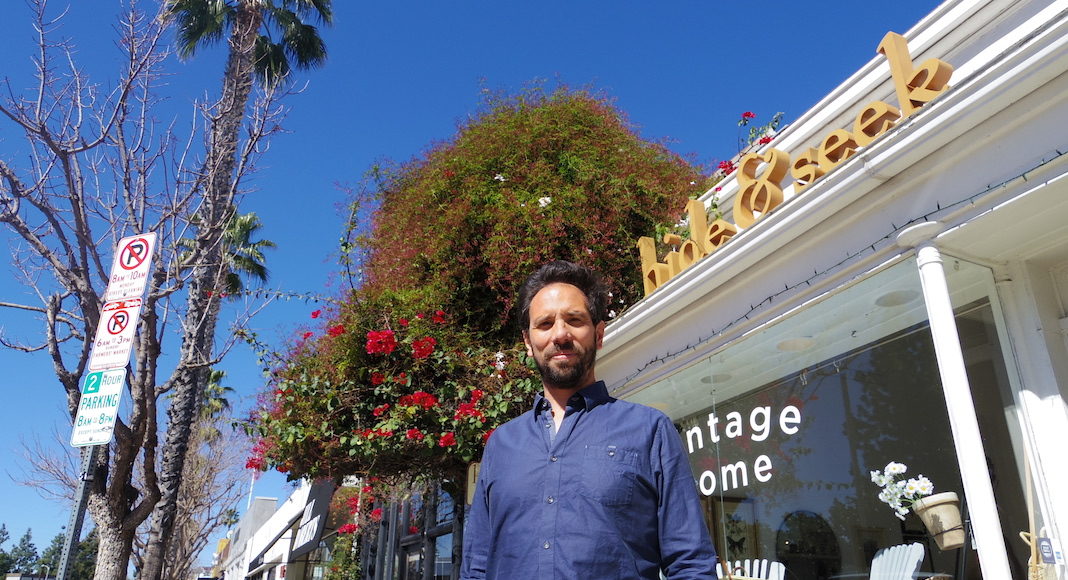
"When the audience does not realize that there are special effects in a film, it is the most beautiful compliment." This is the approach of Guillaume Rocheron who, with his colleagues Dominic Tuohy and Greg Butler, won the Oscar for best visual effects for "1917", the film shot in (fake) sequence shot by Sam Mendes. A second statuette for the 39-year-old Frenchman, already awarded in 2013 for Ang Lee's "L’Odyssée de Pi".
But he hadn't prepared for it this time. "When you make a film, you never know if it will work, you don't think about the Oscars", he explains. So nominated, he still didn't believe it: "This is not the typical special effects film." "1917" faced blockbusters like "Avengers: Endgame", "The Lion King" and "Star Wars IX: The Rise of Skywalker", as well as "The Irishman" which uses the technique of actor rejuvenation. However, he had prepared a speech – which he did not read, he recalls. "It was really behind the scenes that I realized that we had won."
Sam Mendes' film, in which we follow two young soldiers in the trenches of the First World War, was all the more a challenge that there is neither superhero, nor science fiction. "The goal was that the effects were invisible, that the viewer did not focus on technical prowess. The sequence plan asked us to rethink the way we work ”, explains the special effects supervisor, insisting that this award honors the work of a team of 600 people. "5 years ago, we couldn't have made this kind of film." The team made every effort to make the special effects as realistic as possible, to create the illusion of sequences lasting several minutes – as opposed to a few seconds usually.
But, for Guillaume Rocheron, "Technical and technological revolutions are not an end in themselves, they must serve the narration of history". This is why the Frenchman is present from the reading of the script until the post-production of a film. If he was brought to work with Sam Mendes ("Skyfall" and "American Beauty"), it was through word of mouth. His reputation had preceded him. “An Oscar always facilitates opportunities, even if they are difficult to quantify”, admits one who willingly compares visual effects to "Magic trick".
Hypnotized by the first “Jurassic Park”
Fascinated by childhood by comics, Guillaume Rocheron turned to photography, then cinema, at a very young age. He was then hypnotized by films like "Star Wars" and "Laurence of Arabia", before being "shocked" by the special effects of the first "Jurassic Park". “He changed my vision”, assures the one who made short films on computer from the age of 15. He was noticed by BUF Compagnie, a French special effects company specializing in image synthesis, which hired him. At the same time, he was training at the Georges Méliès school in Orly. First experiences that forged his approach to special effects: "I focus on the final image, not just the detail of the image, unlike Americans and Anglo-Saxons." For the French, this "French touch" is exported: "There are a lot of French technicians in the studios, it is a country with a real cinema culture."
"I hope the films I make today will inspire new generations."
Curious, he agreed in 2005 to leave for England to work with the Moving Picture Company. Then, he was sent by this company to Vancouver for a few years, before landing in Los Angeles, the studio mecca, four years ago. “This city offers a good quality of life, even if as a European, adjustments have to be made”, he says. These lucrative moves, since Guillaume Rocheron has continued to multiply American blockbusters, including "Fast and Furious 5, the first two parts of" Godzilla "or" Ad Astra ".
In his profession, his mantra remains the challenge: "Today, the public is used to special effects, it's hard to impress them. Everyone knows the magic trick ”, assures the Frenchman who works, on average, two years on a film. “Special effects have been part of the history of cinema since Georges Méliès and Alfred Hitchcock. Digital developments will in the future make them more intuitive to use ”, pleads the supervisor.
In this sense, he refuses to be satisfied with the professional Grail that an Oscar represents. “I'm not yet 40, I don't want these awards to be an end in itself ”, says the one who will follow up on a new project in a few weeks. “In this business, we cannot rely on our achievements.” He still aspires to reinvent, innovate and multiply professional collaborations with “visionaries” who want to create an experience. Like Bong Joon-ho, who won an Oscar for “Parasite”.



![[Webinaire] Immigrate to the United States in 2021: what is the O visa, and how to get it?](https://californialines.com/wp-content/uploads/2021/01/1611723305_Webinaire-Immigrate-to-the-United-States-in-2021-what-is-218x150.jpg)




